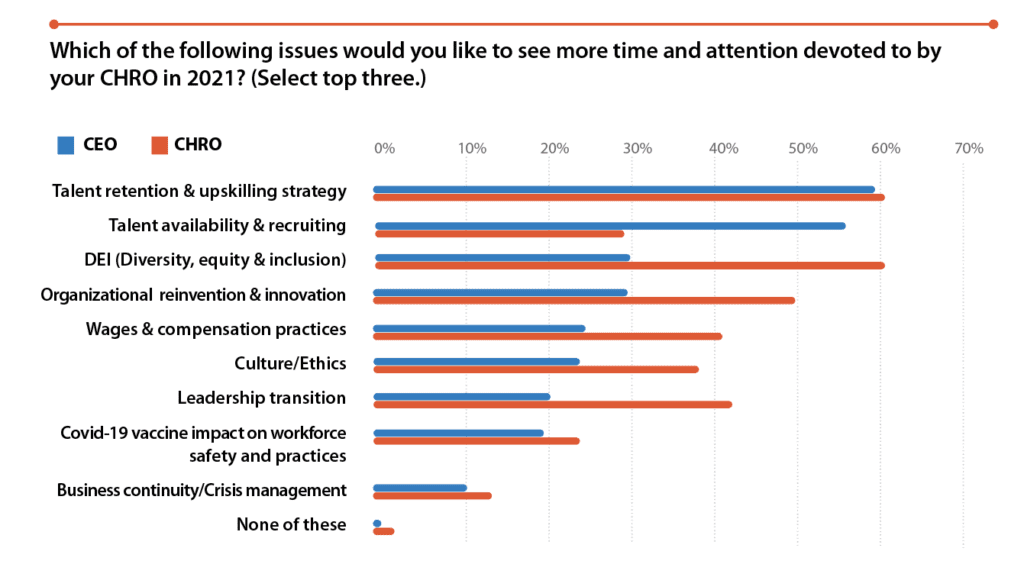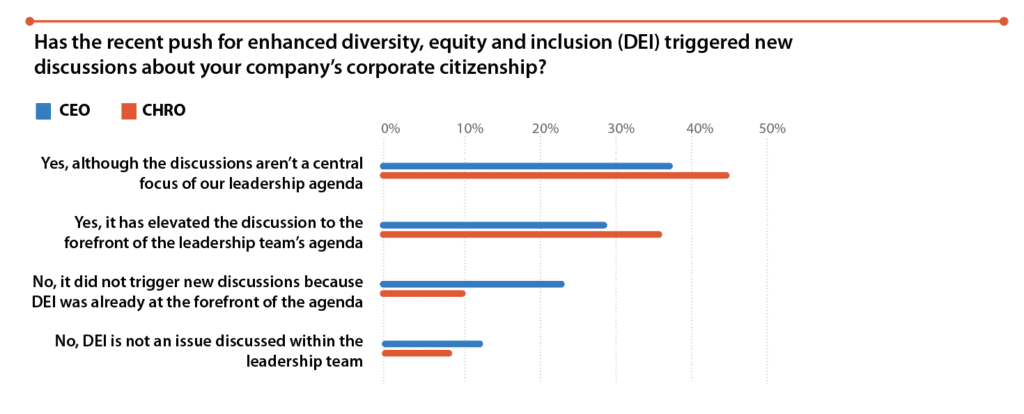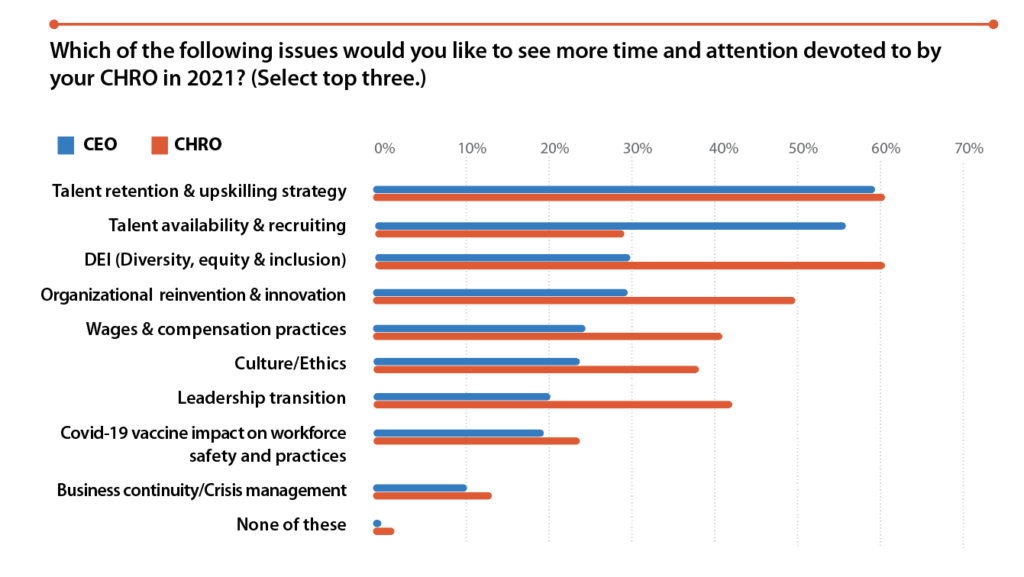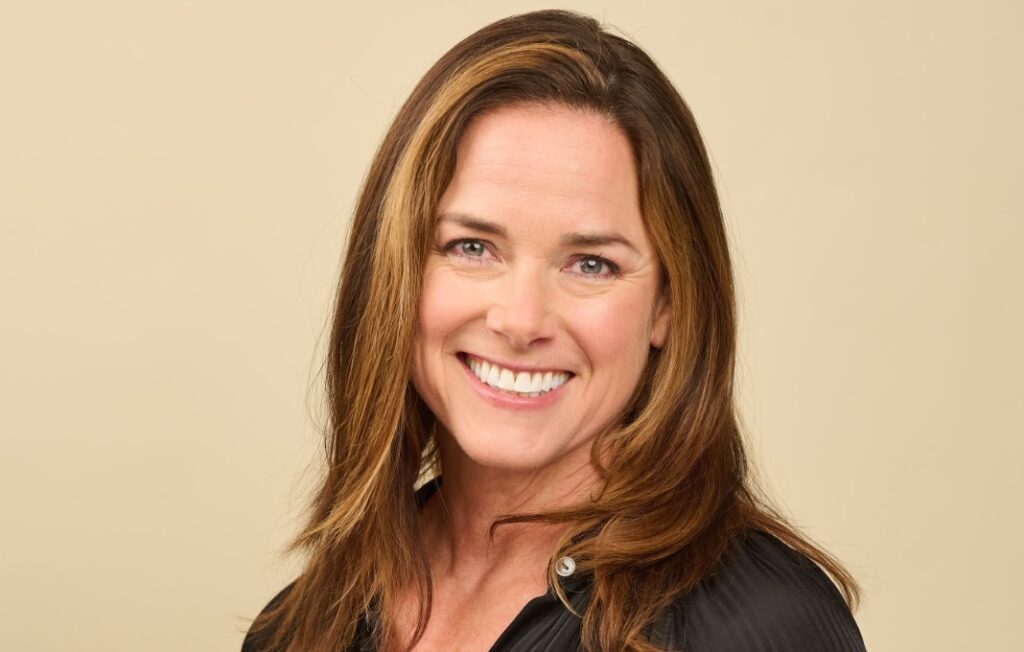As the talent war continues to rage, CEOs want their human resource chiefs to spend more time finding, retaining and upskilling great employees, according to a new survey by Chief Executive and SHRM–the Society for Human Resource Management. But the survey, which polled 243 CEOs and 406 CHROs, also found CHROs wishing their CEOs spent more time thinking about diversity, equity and inclusion (DEI) strategy. A closer look at the findings suggests that while the differences between CEO and CHRO perspectives are fewer than their areas of agreement, there might be room for improvement around collaboration on talent strategy overall.
When asked what they’d like to see their CEOs spend more time on, 62 percent of CHROs, the highest percentage, said diversity, equity and inclusion (DEI), compared with 30 percent of CEOs asked the same question about their CHROs. That may suggest HR chiefs are not getting as much buy-in from their CEOs as they’d like, but it also might indicate that CHROs are more aware of how DEI impacts business outcomes such as retention and engagement.

Two-thirds of both CEOs and CHROs said the frequency and depth of conversation about human capital have increased in light of the social events that occurred in 2020. The two differed slightly on whether the recent push for enhanced DEI has triggered new discussions about corporate citizenship. Both CEOs (37.9 percent) and CHROs (44.4 percent) said it had elevated the discussion, but that it was not the central focus of the leadership agenda; however, 22.6 percent of CEOs said it did not trigger new discussions because DEI was already at the forefront of the agenda, while only 10.2 percent of CHROs said the same.

The two survey populations differed on the question of how best to monitor potential problems in the culture. Both CEOs and CHROs cited turnover data, employee surveys and one-one-one discussions as key tools, but 57 percent of CHROs named hotlines as a primary method, while only 40.3 percent of CEOs said the same.
Maintaining culture was named by both CEOs (67%) and CHROs (62%) as the top challenge to a remote work environment. Other remote work challenges included enabling collaboration/communication, managing workloads and work-life balance, and fostering creativity/innovation. It’s noteworthy that only 3% of CEOs and 2% of CHROs reported no challenges with a remote work environment.

One clear area of agreement between CEOs and CHROs: 84% of each group said the role of HR manager has expanded and is now viewed as a strategic advisor to the CEO. A little more than three out of four CEOs said they look to their HR chiefs for views on business strategy and operational issues planning, though that still came in last of four other areas of value CEOs want to see their CHROs provide. But CEOs may want to get their CHROs better access to data: just over half of CHROs believed they could offer more value to the CEO by leveraging people data to prevent significant workplace culture issues, while only 28 percent of CEOs named that as a priority.

In a paper produced in collaboration with SHRM, we offer a deeper dive into the numbers to find where CEOs and CHROs agree—and where they don’t—on human capital.







